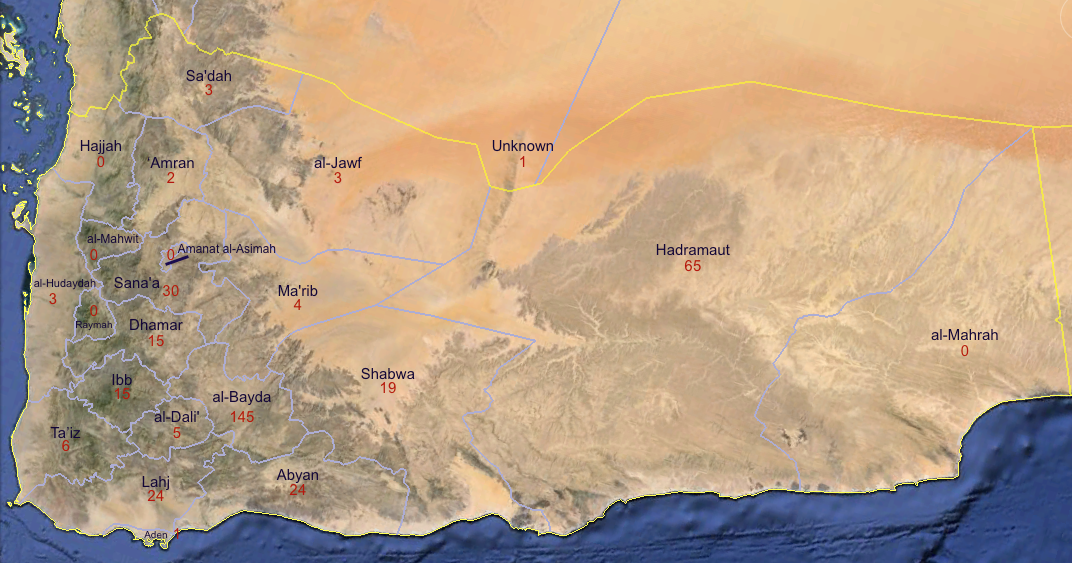
The recent takeover of Yemen’s fifth largest city of al-Mukalla by al-Qaeda in the Arabian Peninsula (AQAP) highlights the growing strength of the organization. While AQAP has certainly taken advantage of the more chaotic environment as a consequence of the Houthi’s war in the south and the Saudi air campaign, the group has in fact been gearing up its own overt military campaign since last summer. Therefore, even if there is an eventual ceasefire between the Houthis and the Saudis, AQAP will continue fighting and operating on its own terms.
Background
Starting in late July 2014, AQAP made a concerted media effort for the first time to actively report and take credit for its military operations on an almost daily basis. This differed from its past pattern of only commenting on large-scale operations. In part, AQAP did this to bring attention to its new military campaign, two years after it had been kicked out of southern cities by the Yemeni military and local popular committees after governing from the spring of 2011 to the summer of 2012.
As part of this new media effort, AQAP created different Twitter accounts online to push its content, one of them being a news feed called Akhbar Ansar al-Sharia fi Jazira al-‘Arab (Ansar al-Sharia in the Arabian Peninsula News; the name of the feed is derived from a period in 2011 and 2012, when AQAP controlled tracts of territory and adopted the name Ansar al-Sharia in Yemen to circumvent perceptions of toxicity with the AQ brand). This feed has been AQAP’s key mouthpiece for releasing information on its military activities since early August 2014. Through April 21, AQAP has claimed responsibility for 374 attacks, with the vast majority against Houthi (224) and government forces (147).* Therefore, while AQAP has certainly taken advantage of the recent chaos and vacuum created by the Houthi attacks in the south and the Saudi air campaign, the organization had already been involved in a sophisticated military campaign. In many ways, the group is now just exploiting a change in conditions, which will allow them to thrive even more in the same way The Islamic State was able to in Iraq in the lead up to its takeover of Mosul almost a year ago.
AQAP’s Operations
AQAP’s modus operandi is remarkably dynamic. But while the group’s target selection, tactics, and geographic concentration appear fluid, by analyzing its attacks since August particular patterns can be discerned, which themselves offer an opportunity to assess not only the magnitude but also the nature of the threat AQAP poses to security and stability in Yemen.

Click here to read more.
